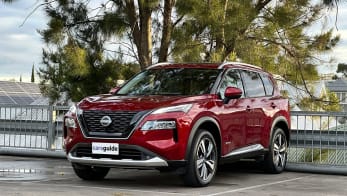Australian new car buyers are taking an all-or-nothing approach to electrification - at least according to Mercedes-Benz.
The German luxury brand is one of several car makers to drop plug-in hybrids, instead preferring to focus on its expanding range of all-electric vehicles (EVs) and its range of existing internal combustion models.
The reason is simple, with customers either opting to stick with what they know (ICE) or making the wholesale switch to electric power, therefore jumping over the bridge that plug-in hybrids (PHEV) seemingly offer.
"With every electric model that we release, we're seeing our customers shift - they either go for ICE or electric," Mercedes Australia Spokesman, Jerry Stamoulis, told CarsGuide.
Mercedes was an early advocate for PHEVs, originally with the C-Class and then more recently with the E300e and GLC300e, but with the increased availability and acceptance of EVs, it has decided to cut back.
For example, the new internal combustion-powered GLC range is due to arrive in Australia in June before the similar-sized but all-electric EQE SUV lands in the third quarter of the year. Stamoulis is confident that this dual strategy is the best for the local market.
.jpg)
"We're about to launch GLC and a couple of months later we're going to launch the EQE SUV," Stamoulis said. "To offer another variant increases model complexity, which is not something that we're looking to do."
Asked if this was driven by genuine consumer behaviour or a corporate desire to reduce model complexity, Stamoulis admitted it's a combination of factors.
"It's definitely both," he said.
.jpg)
The timing of its ramped-up EV line-up is seemingly ideal for Mercedes-Benz, with the Federal Government set to release details of its long-awaited National Electric Vehicle Strategy in the coming months to drive more EV uptake. Even though Stamoulis is confident that customers will continue to make the switch to electric Mercedes with or without incentives.
"From a Mercedes-Benz perspective we're already seeing our customers gravitate towards electric vehicles," he said. "If there are some incentives that do relate to our products it will increase the take-up rate, but at this stage we're already seeing traffic through our doors because our vehicles are enough to bring them to us. At this stage, there are no government incentives that apply to our vehicles."
Mercedes will offer eight electric models by the end of the year, following the recent introduction of the EQE sedan which will be joined by the EQE SUV and EQS SUV.








.jpg)
.jpg)
.jpg)
.jpg)
.jpg)



.jpg)






_0.jpg)
_0.jpg)
.jpg)
.jpg)


.jpg)

Comments